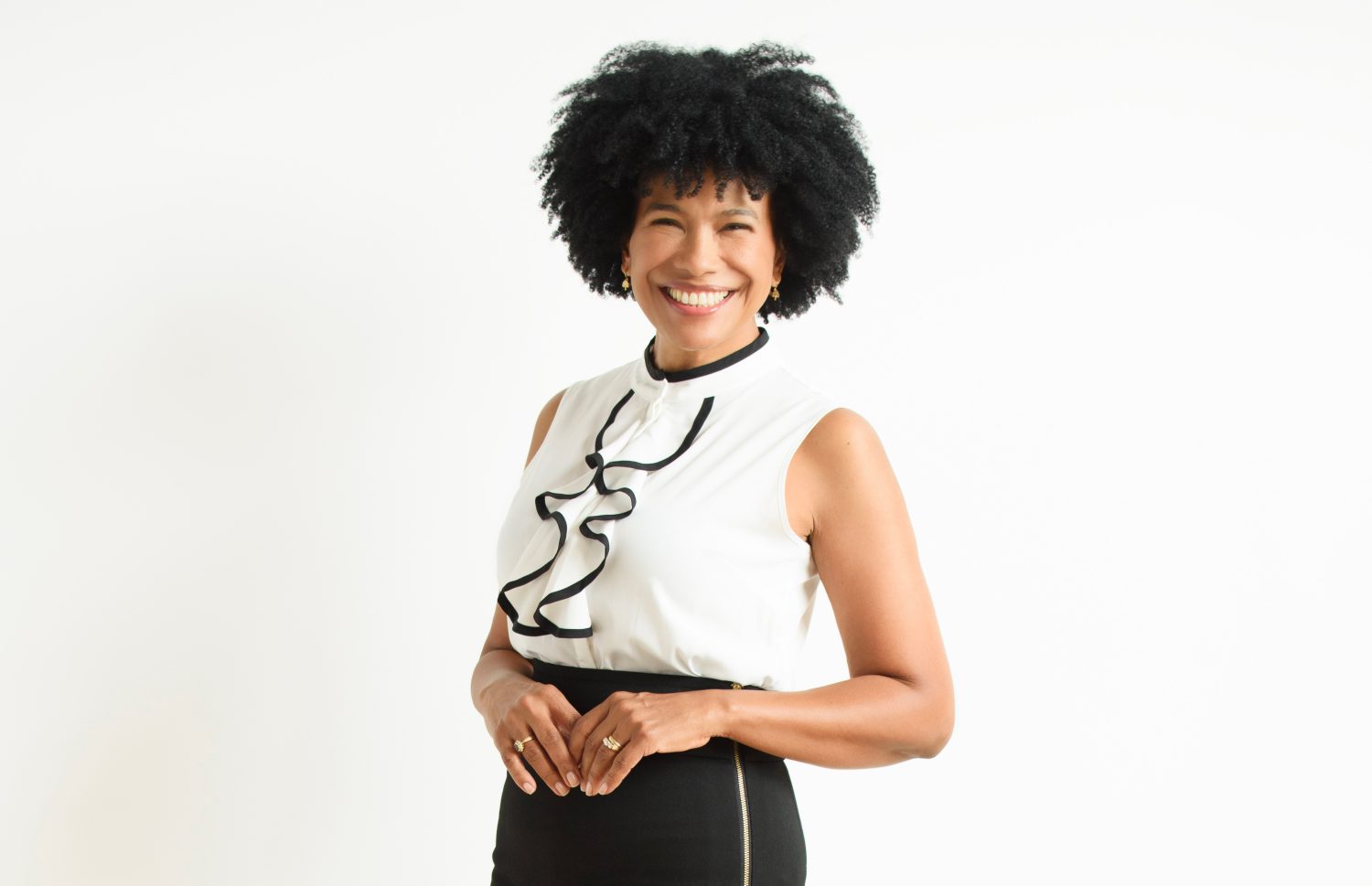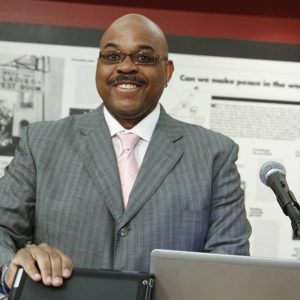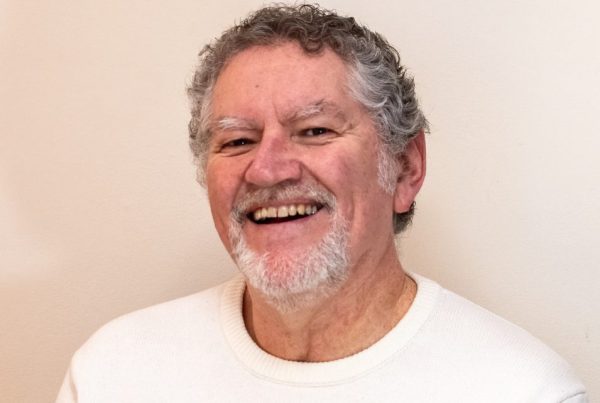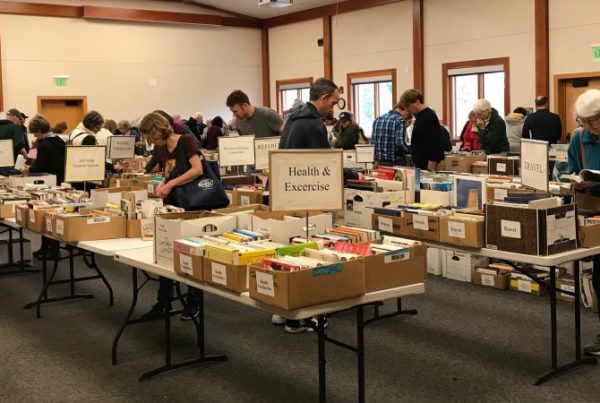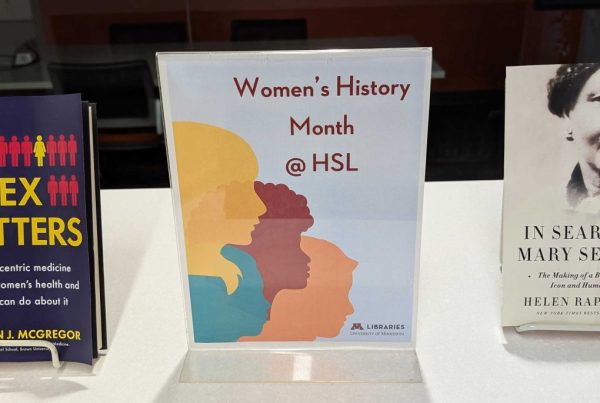Growing up in the mountainous region of Colombia, Clemen Wilcox never celebrated Black History Month. But when she immigrated to Minneapolis in 2002, it was one of many culture shocks.
There’s the weather of course, learning a new language, the midwestern food, and also racism. She experienced racism in Colombia – her late father was Afro-Latino, and her mother is light-skinned with an Indigenous background – but it’s even worse in America.
Her position at the University of Minnesota conveys a certain amount of respect. Currently she’s finishing her master’s in business administration, and is an engagement director for 10,000 Families, a joint research study about family health in Minnesota, run by the School of Public Health, Medical School, and Masonic Cancer Center.
But that respect doesn’t extend off campus. Out in the metro, in the eyes of white passerbys, she’s just another Black immigrant. Wilcox has been pulled over seven times in Iowa and three times in the Twin Cities. But she’s never given a ticket.
“It was always an excuse to see who was in the car, and to ask me for every single paper that I could ever have,” Wilcox said. “And I’m a female, it’s even worse for my brother and my nephew.”
So for her, heritage months have two separate faces: the month itself, and the actual community. And oftentimes, people prioritize the former over the latter.
“Is this celebration for us?” Wilcox said. “Most times it’s for someone to say, ‘You have your month. Be happy, don’t complain.’ And it’s disheartening that that happens, but that’s the reality.”
A history of Black History Month
The U.S. State Department officially recognizes 10 heritage and history months, but there’s a lot more depending who you ask. And what the heritage month truly means, or should mean, is an equally fuzzy question.
Originally, Black History Month sought to combat racism through education, that by recognizing the accomplishments of Black people in America, it would demonstrate their worth in society, and counter the widespread narrative of Black inferiority.
Black History Month traces back to Carter G. Woodson, a historian and journalist from Virginia, born in 1875. Woodson, whose parents were formerly enslaved, became the second African American to earn his doctorate from Harvard University after W. E. B. Du Bois, graduating in 1912.
Three years afterwards, he traveled to Chicago to attend a national three-week celebration of the 50th anniversary of emancipation. Meeting at the Wabash Avenue YMCA in Chicago with three colleagues, he formed the Association for the Study of Negro Life and History (ASNLH).
In 1926, the ASNHL announced Negro History Week, celebrated during the second week of February to coincide with the birthday’s of Abraham Lincoln and Frederick Douglass. The move came during the height of the Harlem Renaissance, but also during widespread lynchings, the rebirth of the Klu Klux Klan, spikes in the construction of Confederate memorials, and the ahistorical revisionist myth of The Lost Cause of the Confederacy.
Woodson believed that racial prejudice was learned – taught and reinforced by public institutions, the government, and broader white society – and so, could be unlearned. He argued Negro History Week was necessary in undermining white supremacy.
“Let truth destroy the dividing prejudices of nationality and teach universal love without distinction of race, merit or rank,” Woodson wrote in The Journal of Negro History (today named The Journal of African American History).
Throughout the following decades, Negro History Week spread across the country until in 1970, Black students and educators at Kent State University designated the entire month of February as Black History Month. President Gerald Ford nationally recognized Black History Month in 1976, and every president since has carried the tradition.
Learning the good and the bad
Not many years passed before a young Amelious Whyte Jr. attended fourth grade at a Catholic school in Brooklyn, New York. The school, like the neighborhood, was almost exclusively white.
Being the only African American in the classroom meant getting singled out by his classmates, especially when the curriculum turned to slavery. Today he still wonders, “Why is slavery taught as the history of Black people, and not the history of white people?”
Whyte, the interim director of Diversity, Equity, and Inclusion at the College of Liberal Arts, thinks heritage months serve three purposes: a sense of validation and affirmation, an opportunity for celebration, and an opportunity for education, especially for people who aren’t members of the recognized community.
The affirmation piece is twofold. It’s a reminder that he matters, and that people still care about people like him. And for the broader population, it’s a reminder that Black people exist and have value. And that’s where education comes in.
“It’s an opportunity to learn the good but also the bad,” Whyte said. “It’s probably easier to go through life as a white person and never think about achievements of people in certain groups, or some of the challenges that Black people have, or Hispanic people, or GLBT people.”
Even Whyte has learned a few things from Black History Month, like “The Father of Blood Banking” Charles Drew, an African-American surgeon and researcher from Washington, D.C., who pioneered the field of blood transfusions and blood storage in the early 1900s.
As the director of the first American Red Cross Blood Bank, Drew advocated for the integration of African-American blood into plasma-supply networks. He died in 1950 at age 45 in a car accident, but his daughter, Dr. Charlene Drew Jarvis, continues to protest against racial disparities in healthcare.
Ideally heritage months can promote stories like Drew’s, and encourage people to ask why they didn’t know this history, Whyte said. But conversely, he worries that Black history, culture, and people can become siloed to one month a year.
“You can talk about Black history 365 days a year,” he said.
Celebration is great, but the work remains
Both Whyte and Wilcox agree that people need to know the history, but more importantly, how that history impacts the present.
Whyte remembers helping organize an event to celebrate the 60th anniversary of the March on Washington for The Heartland Center for Jobs & Freedom. The team used posters from the march that read, “We demand equality and justice now!” and “End police brutality!” And Whyte thought, “Wow we don’t need to change any of these posters.”
“All of those things that they were marching for in 1963 are still relevant in 2024,” he said. “White supremacy today is not about people burning crosses and wearing white sheets. It manifests in offices, even at the university where I work and love, where almost every staff person is all white, and no one questions that.”
Wilcox, a relative newcomer, is already familiar with the grade school stories shared during Black History Month and Hispanic Heritage Month. She knows about Rosa Parks, Martin Luther King Jr., and Cesar Chavez. It’s important to grab hold of these figureheads and role models, she said, but have their messages been heard and adopted?
“Let’s talk about what we need to change. Let’s talk about what hasn’t changed. Let’s not talk about the same stories,” Wilcox said. “During African-American heritage month, a lot of issues were talked about, but they were not solved. We continue going over the same issues, like incarceration.”
In many ways, Wilcox is the embodiment of the immigrant success story. She completed an undergraduate degree and is finishing her graduate degree, she started two businesses, she got married and started a family. But even though she worked hard, she knows not everyone was given the same tools.
“They want to measure everyone with the same ruler. ‘If Clemen could, how about these other people doing nothing? They could just be getting a degree like her.’ That’s not true,” she said. “If anyone could do it, everyone would do it. It takes away from my sacrifices and ignores other people’s challenges.”
The world is not homogenous
Wilcox considers herself fully Hispanic and fully African. Every piece of her identity and heritage belongs to her. But not everyone agrees. Afro-Latinos remain a small percentage of the population in America, and even in Colombia.
“Sometimes, the same community doesn’t welcome me fully because they don’t think I have the same experience. And in reality, I don’t. I have half and half and half and half of lots of experiences,” Wilcox said.
For heritage months to live up to their ideals – to address the problems facing the community and solve them – it requires intersectionality and cooperation between even different communities.
“African Americans and Hispanics have always been put against each other. The system wants them to be fighting because if we were together, we would be very strong,” Wilcox said. “If we don’t work with the white population, we don’t have anything. But it’s the same with Latinos, with African-Americans, with Somalis, with Hmong, with Native Americans, all the people we have here. We are not going to accomplish anything if we continue trying to solve only our own issues.”
Whyte also has multiple identities; he’s a Black, gay man, the son of an immigrant on his father’s side. And for that reason, he sees power and potential in heritage months. They can show the unique contributions of people who share different and overlapping identities. And that’s especially helpful for people whose culture is erased or obscured.
Wilcox believes that heritage months should be given to the community. How many celebrations were planned by the community? Were community members even consulted? Whyte advises organizations to recognize people’s heritage throughout the year, and to internalize equity.
“It’s great to post and say, ‘Hey, it’s Black History Month!’ But are you willing to ask your boss why all your staff is white? Are you willing to challenge your friends who say racist things?” Whyte said. “Your work environment may be homogeneous, but the world is not. The country is not.”


